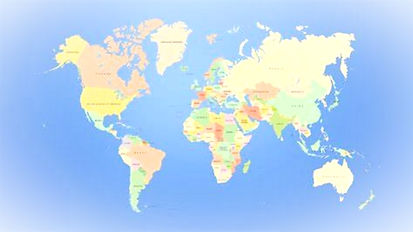“Applying the new wars debate:
Exploring new paths forward for conflict resolution in Syria”
The major research theme of this paper is the theoretical application of the new wars theory, and the potential for the empowerment of civil society leaders. New wars are characterized by multiple actors in a conflict, as well as particular types of financing, goals and methods of utilizing violence. It provides a broad overview of the Syrian Civil War, and some of the factors for its continuance. It explores a Cosmopolitan approach to peacebuilding first discussed by Mary Kaldor (2013) where in the case of the state no longer being seen as a legitimate authority, it is helpful to empower and legitimize civil society leaders with a vested interest in good governance for the civilian population.
The wider context of the region is critically important here, with historical and religious overviews providing some background to understand the political awakening of the Arab Spring (Turkmani, 2015) as well as the larger political agendas at play in the area.

Reflection: A Friend's Story
My friendship with Syrian immigrant involved with Interfaith work in Halifax, is a thread that provided me with some insight within my learning. At that time, we met regularly, along with another student, to practice reading and speaking Arabic over the last few years. When I was writing this paper, we talked about the challenges of engaging moderate civil leadership. He said that in the case of Syria, many were forced to go underground, either in hiding in Syria or in other countries. I had read about these repressions (Kaldor, 2020) but listening to a personal story shared affected me much more deeply. After our discussion, I was reflecting that here in the West, we often lack an understanding of the physical risks involved in civil society engagement in opposition to autocratic regimes. We are free to demonstrate, gather and oppose and so this risk is not part of our understanding of civil dissent. So how do we listen to hear someone else's story through their lens instead of ours? By building relationships with people who differ from us, can this allow us to break through our myopic barrier? Can we understand another's context more compassionately through the power of relationship?
Reflection on bias and the epiphany of a parallel process
Many of the courses I have been drawn to throughout my Master's program have drawn significantly on post colonial studies. These writings have made me reflect on the impacts of the last 100 years and have given me perspective on colonialism and cultural context. Many of the readings from many courses in the program also portrayed Israel in a negative light. Perhaps in other disciplines this might not have been the case, and certainly I am sensitive to it, but I have not seen such a generalized and consistent portrayal of other countries. The normalization of this narrative made me conclude that I could not write about any alternate views of the Middle East conflict without risking my grade. I acknowledge that I never tested this theory, but regardless of the possible outcomes, this did not feel like a safe option for me. I also recognized that in my objections to such a one sided view, I needed to be equally as open to challenging my own narratives if I am to bring a different voice to the discussion.
I did still want to further my understanding of the geopolitics and social dynamics of the region and felt that the academic program could and should be able to help me towards this end. The question remained, if I felt I could not write about Israel, what topics could I feel comfortable writing about to continue to develop my understanding of the complexities of the region?
Writing this paper on Syria was a gift in my learning process, and a dive into interdisciplinary study as a tool to examine a problem from different angles. It forced me to zoom out to look at the history of the dynamics of the region, the interference of third party agendas such as Iran and Saudi Arabia, and the threat of living with insurgency and terrorism. I also was inspired by Mary Kaldor’s (2020) cosmopolitan strategy in addressing conflict and legitimizing civil society leaders and their efforts. Her new wars theory provides a framework for distinguishing a new type of warfare that requires a new type of peacemaking.
In the next phase of my work, the question remains as to how to achieve what Kaldor suggests; how do we empower the next generation of international civil society leaders in a practical sense? If ecological pressures, such as a lack of sufficient access to fresh water, put additional pressures on societies undergoing conflict, is there a way to collaborate on international efforts to find logistical or technological solutions?
